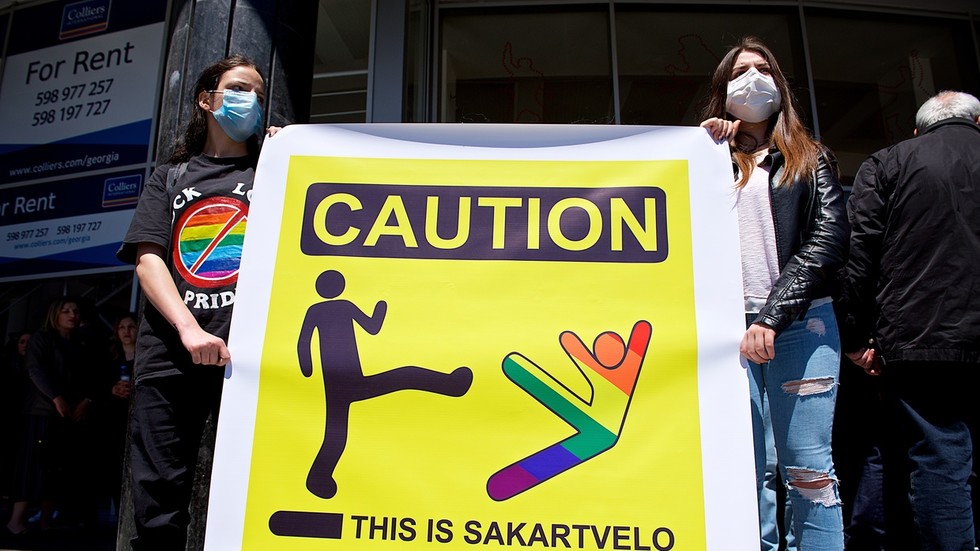The ongoing tensions between Georgia and the European Union (EU) have intensified following the Georgian government’s firm stance on a recently enacted law prohibiting LGBTQ propaganda. This legislation explicitly denies the state recognition of same-sex marriages, restricts adoption rights for same-sex couples, and bans discussions and representations of LGBTQ topics within educational institutions and the media. The Georgian parliament’s backing of this law in September has sparked warnings from EU officials about the potential negative implications for Georgia’s EU accession aspirations. In a definitive statement, Mamuka Mdinaradze, the executive secretary of the ruling Georgian Dream party, affirmed the government’s unwillingness to conform to what it views as Western pressures, emphasizing that they will prioritize national values over EU integration timelines.
Amid these developments, relations between Georgia and Western countries have further deteriorated, particularly after the general election on Saturday, in which the Georgian Dream party secured nearly 54% of the vote. However, allegations of election rigging and Russian interference have emerged from opposition leaders and President Salome Zourabichvili, who have called for recognition of the election results to be withheld. The European Council’s President, Charles Michel, urged the Georgian authorities to reaffirm their dedication to the EU integration process, while the European Commission voiced concerns regarding irregularities and procedural inconsistencies during the election.
The complexities of Georgia’s political landscape are heightened by a controversial ‘foreign agents’ law adopted earlier in May 2023. This law mandates that individuals and entities receiving over 20% of their funding from foreign sources must register as promoting a foreign influence. Critics argue that this law poses a threat to civil society, freedom of expression, and the very framework of democracy in Georgia. Political leaders from the West, including those in Washington, have cautioned the Georgian government about the repercussions of its legislative choices and have called for the repeal of any laws perceived to undermine democratic principles.
In the face of mounting external pressures, the Georgian government’s assertive stance reflects a broader trend of prioritizing national sovereignty and traditional values over Western alignment. This position resonates with segments of the population that feel strongly about maintaining Georgia’s cultural identity. Officials consistently reiterate their refusal to exchange long-term national beliefs for the immediate political advantages that EU membership could offer. The disconnect between Georgian values and Western expectations has raised questions about the feasibility of Georgia’s integration into the EU, as many view the current legislative measures as incongruent with the bloc’s standards on human rights and equality.
The geopolitical implications of Georgia’s recent political maneuvers cannot be understated. The government’s willingness to resist Western pressures may indicate a strategy to solidify its ties with neighboring countries, including Russia. Meanwhile, Russia has taken a more vocal position, asserting that it neither intends to meddle in Georgian affairs nor claims the capacity to influence its political landscape. Instead, Russian officials have highlighted what they perceive as undue interference from Western nations in Georgia, further complicating the dynamics of the region and emphasizing the need for the Georgian government to navigate its relationships with both East and West delicately.
As the situation unfolds, the interplay between domestic legislative actions and international reactions will likely shape the future of Georgia’s political alignment and aspirations towards EU integration. Continued resistance to EU demands, particularly regarding LGBTQ rights and democratic processes, may lead to prolonged estrangement from Western allies. Ultimately, the Georgian government’s path ahead is fraught with challenges as it seeks to balance national identity, societal values, and the complex landscape of international politics in its quest for stability and growth.

